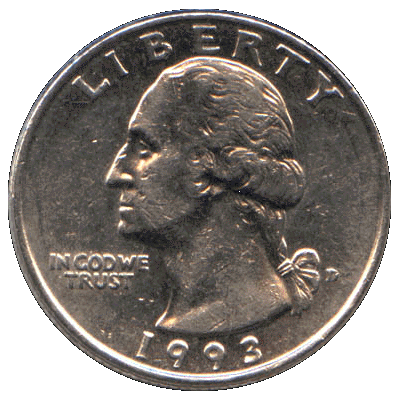Merger and Acquisition Valuation: Asset Deals vs. Stock Deals – Two Sides to the Same Coin
By Sean R. Saari, Partner, Advisory Services

 When negotiating for the purchase or sale of a business, the focus of both the buyer and seller is typically on the transaction price. If a $10 million sales price is agreed upon by both parties, what should it matter whether it is the target company’s stock or assets being sold? To both the buyer and the seller, however, the structure of the deal can be just as important as the price.
When negotiating for the purchase or sale of a business, the focus of both the buyer and seller is typically on the transaction price. If a $10 million sales price is agreed upon by both parties, what should it matter whether it is the target company’s stock or assets being sold? To both the buyer and the seller, however, the structure of the deal can be just as important as the price.
Imagine you had a quarter, which if presented to a cashier with one side up was worth $.25, but was only worth $.15 if presented with the other side up. This is similar to the asset deal vs. stock deal conundrum. Although a $10 million deal is a $10 million deal no matter how you cut it (just like a quarter is a quarter), the structure of the deal (or the presentation of the coin in this example) plays a significant role in its value to the person holding the asset.
There are three main reasons that parties negotiate for asset or stock deals (depending upon what side of the table they are sitting on): tax issues, liability issues, and depreciation/
amortization issues. The general pros and cons related to these issues for buyers and sellers are summarized below:
Tax Issues – It is generally in the seller’s favor from a tax perspective to structure the transaction for the sale of a C corporation as a stock deal because the proceeds are only taxed once (as capital gains at the personal level for the owners – currently 15%). On the other hand, in an asset deal, the proceeds from the sale are taxed twice: once at the company level (approx. 35%) and again at the owner level upon distribution (15%). Therefore, the dollars that end up in the seller’s pocket at the end of the day are far less in an asset deal than in a stock deal, as evidenced below (assuming there is no basis in the stock or assets and there are no NOLs):
|
Asset Deal |
|
Stock Deal |
||
|
|
|
|
||
|
Deal Price |
$ 10,000,000 |
$ 10,000,000 |
||
|
Corporate Level Tax (35%) |
(3,500,000) |
– |
||
|
Cash Available to Distribute |
6,500,000 |
– |
||
|
Dividend Tax (15%) |
(975,000) |
– |
||
|
Capital Gains Tax (15%) |
– |
(1,500,000) |
||
|
After-Tax Proceeds to Seller |
$ 5,525,000 |
$ 8,500,000 |
||
As you can see above, there is a $2,975,000 difference in the after-tax proceeds to the seller depending upon whether the transaction was structured as an asset deal or a stock deal. That is nearly 30% of the total deal price! Further, with the Bush tax cuts set to expire at the end of 2010, absent any action by Congress, the scheduled dividend tax increase could result in even more tax on an asset sale. Reflecting on the example above, it is easy to see how a $10 million asset deal is not the same as a $10 million stock deal and why sellers favor stock deals so heavily.
Liability Issues – If the same $10 million is coming out of the buyer’s pocket regardless of whether the transaction is an asset deal or a stock deal, then why aren’t all transactions stock deals? One major reason is liability issues. It is in the buyer’s favor to structure the transaction as an asset deal because any contingent liabilities that may exist for the target company as of the transaction date stay with the target company (they do not transfer to the acquirer with the purchased assets). Therefore, there is much less risk for an unknown liability surprising the buyer after the transaction has been completed. Essentially, in an asset deal, a buyer is able to shield itself from legal liabilities that arise from the seller’s actions prior to the transaction date.
Depreciation/Amortization Issues – In addition to the liability issues above, buyers also favor asset deals because it allows them to amortize any intangible assets or goodwill acquired in the deal when computing taxable income. Further, any fixed assets acquired in an asset deal are written up to fair market value, allowing for full depreciation of the value of these assets for tax purposes. In a stock deal, the buyer takes a carryover tax basis in the business’ assets. As a result, it is not uncommon for the acquired fixed assets, intangible assets and/or goodwill to have little or no tax basis, resulting in little or no depreciation or amortization expense for tax purposes. Therefore, it is more beneficial for a buyer to structure a transaction as an asset deal when there are fully depreciated fixed assets or intangible assets/goodwill associated with the transaction.
As discussed above, there are pros and cons to each party in a transaction depending upon whether it is structured as an asset deal or a stock deal. The overriding forces typically result in buyers favoring asset deals and sellers favoring stock deals. During the negotiation process, it is important to understand the benefits not only to you, but also to the other party, so that a mutually beneficial deal structure can be achieved.
To learn more about asset deals and stock deals, post a comment below or please contact Sean at [email protected].



















